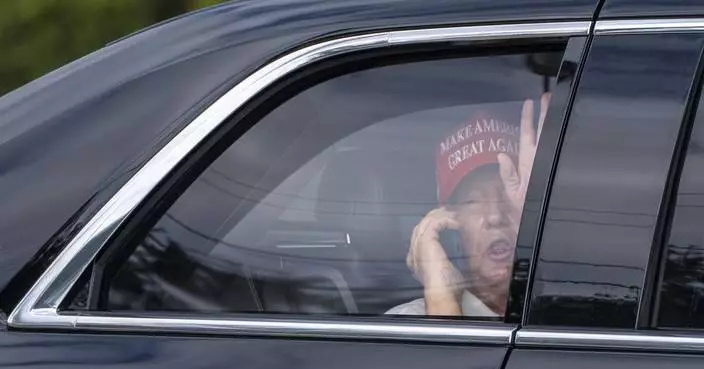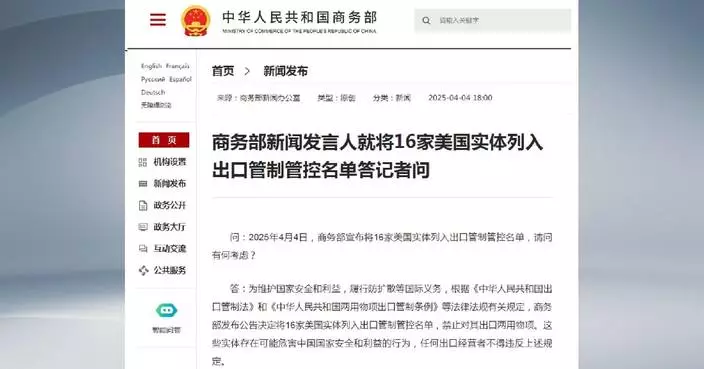WESTON, Fla.--(BUSINESS WIRE)--Jul 15, 2024--
Postal Center International (PCI), an industry leader in mail solutions, is again proactively encouraging businesses to leverage its expertise to reduce the effects of the upcoming United States Postal Service (USPS) postage rate increase, which went into effect yesterday, July 14, 2024.
This press release features multimedia. View the full release here: https://www.businesswire.com/news/home/20240715489794/en/
Last adjusted on January 21 of this year, the rates, according to the USPS, will see a 7.8 percent uptick. The cost of a First-Class Forever Stamp will jump to 73 cents, up from 68 cents, while one-ounce metered letters are to be bumped up by five cents to cost 69 cents. International Postcards and one-ounce letters will be increased by 10 cents to cost $1.65.
Ismael Diaz, President & CEO of PCI, reaffirmed the company's commitment to supporting clients during these challenging times. “At PCI, we understand the challenges that new rates can bring to your business. We are fully committed to our client-centric values and are here to support you every step of the way. Our dedicated sales team is ready to offer a complimentary assessment, providing personalized strategies and innovative solutions to help ease the financial burden of these rate hikes. Together, we can optimize your mailing practices and uncover opportunities for cost savings, ensuring minimal disruption to your business.”
Tom Roberts, Senior Vice President of Client Experience at PCI, emphasized the company's cost-savings expertise in commingling, mail presort, and mail automation solutions. "PCI’s advanced commingling and mail presort solutions, coupled with our state-of-the-art automation technology, have consistently yielded significant savings for our clients. We are dedicated to continuing this strategy and helping businesses streamline their mailing operations in light of the new postal rates."
The July 14 rate hike will be the sixth under the United States Postmaster General Louis DeJoy since 2022, who in November announced that the entity was set to lose $6.5 billion in 2023, underscoring the need for these adjustments. The rate hikes are part of the USPS’s ongoing 10-year Delivering for America plan to achieve financial sustainability and reduce its projected $160 billion in losses.
The USPS, an independent federal agency, serves every address in the United States, including protectorates and international military bases, ensuring the delivery of mail nationwide and beyond.
PCI remains steadfast in its mission to provide exceptional white-glove service and cost-effective solutions, ensuring that businesses can thrive despite rising postal costs. For more information on PCI’s solutions and how they can help offset the impact of the postal rate increase, please visit www.pcibrands.com or contact PCI’s sales team for a complimentary assessment on 800-430-7241.
About Postal Center International (PCI)
Postal Center International (PCI), a company deeply rooted in family values, was founded in 1984 by father-and-son entrepreneurs Luis and Arturo Echarte. Four years later, co-owner Susan Echarte joined the business, currently a leading print, mail, fulfillment, signs, and marketing solutions partner. Under the leadership of President & CEO Ismael Diaz since 2006, PCI has become renowned as one of the nation’s largest state-of-the-art transactional printing, postal, and mail processing solutions organizations. The company’s family of brands employs more than 560 associates, with annual sales of over $500 million, at its locations in the Southeast, Southwest, Northeast, and Midwest regions, with a footprint totaling 562K square feet. PCI delivers exceptional mail, print, signs, fulfillment, promotional, packaging, and marketing solutions for enterprise clients in industries such as banking, financial, healthcare, insurance, hospitality, and government nationwide. PCI is a HIPAA-compliant Certified Minority Owned Diverse Supplier at the state and national levels. It holds multiple security, sustainability, and quality certifications, including HITRUST CSF ®, TruSight, FDR, PCI DSS, SOC 2 (Type 2), FSC, SFI, PEFC, and G7.


Postal Center International (PCI) processes millions of mail pieces every day, supporting clients across the country from its facilities in the Southeast, Southwest, Northeast and Midwest. (Photo: Business Wire)
CHARLESTON, W.Va. (AP) — Retired coal miner Stanley “Goose” Stewart questions whether it's safe for anyone to work in the industry right now.
The Department of Government Efficiency, created by President Donald Trump and run by Elon Musk, has been targeting federal agencies for spending cuts. That includes terminating leases for three dozen offices in the Mine Safety and Health Administration, the agency responsible for enforcing mine safety laws.
The proposals for MSHA are “idiotic,” Stewart said, and would give coal companies “the green light to do as they please.”
Safety laws and their enforcement played a significant role before and after the Upper Big Branch mine in southern West Virginia blew up 15 years ago Saturday, killing 29 of Stewart's co-workers.
Stewart was there that day but soon stepped away for good, focusing on his love for hunting, fishing and tending to his chickens and his garden when the weather warms.
Coal mining in West Virginia, meanwhile, spent the ensuing years in a political fight that Republicans largely won. As a 2016 presidential candidate, Hillary Clinton was slammed for saying that her plans to shift away from carbon-based fuels like coal would put miners out of business. Trump vowed to save the industry, and while mining jobs have not made a comeback, coal states like West Virginia have become reliable Republican strongholds.
Advocates for the mining industry argue that state government is up to the task of keeping mines safe, although some lawmakers in West Virginia's Republican majority have used the existence of federal inspectors as justification for curtailing the state inspectors' enforcement power. They also point to the dwindling number of mining fatalities — and mines in general.
Republican Tom Clark, a West Virginia state lawmaker and a former MSHA inspector and supervisor who worked in one West Virginia office slated for closure, said he expected it to shutter years ago. Eight MSHA employees currently work in the Summersville office, Clark said, less than a third of the workforce that existed there about 10 years ago.
Clark said he doesn’t have any concerns for miners, as long as those inspectors are transferred to other coalfield-based offices. Clark, who worked on MSHA's Upper Big Branch investigation, said he supports the Trump administration's efforts to streamline government and stimulate the economy.
“It’s going to take time and there’s going to be some pain for all the American people, I think," he said. “But if we can hang in there and battle through, we all may be better off. I hope so.”
Clark said the federal government should not cut down on inspectors and said black lung benefits need to be funded. He said the government should use money they’re saving to make sure those programs have what they need.
“Funding shouldn’t be a consideration for keeping people healthy,” he said. “It really shouldn’t.”
But Stewart, the former miner, said the MSHA office closures will impact safety.
“I wouldn’t recommend anybody get in the mining industry right now because of what’s going on with Trump and Musk,” he said.
Stewart said he's never supported Trump and never would, but he struggles to explain the loyalty of many West Virginians, including coal miners, to the president. He said Trump had never done anything to help them.
“I can’t wrap my brain around why they can’t see what a con man he is. I just hope someday they’ll wake up. It may already be too late.”
Congress created MSHA within the Department of Labor in 1978, in part because state inspectors were seen as too close to the industry to force coal companies to take the sometimes costly steps necessary to protect miners. MSHA is required to inspect each underground mine quarterly and each surface mine twice a year.
MSHA inspectors are supposed to check every working section of a mine. They examine electrical and ventilation systems that protect miners from deadly black lung disease, inspect impoundment dams and new roof bolts, and make sure mining equipment is safe, said Jack Spadaro, a longtime mine safety investigator and environmental specialist who worked for MSHA.
Mining fatalities over the past four decades have dropped significantly, in large part because of the dramatic decline in coal production. But the proposed DOGE cuts would require MSHA inspectors to travel farther to get to a mine, and Spadaro said that could lead to less thorough inspections.
“It’s a stupid proposal made by stupid people who obviously have no concept or no knowledge about mine safety,” Spadaro said.
Robert Cash, a 55-year-old mine roof bolt operator from Foster, West Virginia, said miners feel “in the dark” about how closing offices will impact safety.
“It's just a big scare around here," he said. “If we have a disaster and they closed down an MSHA office close to us, now what’s the response time to get someone out there to start the investigation?”
Stewart was inside Upper Big Branch when it exploded on April 5, 2010, with a blast he described as “hurricane force winds.” Before reaching the surface, he tried to revive some of his fallen co-workers, then covered their bodies with blankets.
Investigations determined that worn and broken cutting equipment created a spark that ignited coal dust and methane gas.
After the disaster, MSHA sent inspection teams to conduct impact inspections at mines with a history of repeated problems, many of them underground operations in West Virginia and Kentucky, which have nearly half of the nation’s coal mines. Under the second Trump administration, the impact inspections have stopped.
Joe Main, MSHA’s chief during the Obama administration, said on Musk’s social media site X that weakened MSHA enforcement staffing contributed to the Upper Big Branch disaster and that the proposed DOGE cuts “can risk miners' lives in an agency already short staffed.”
Some 34 MSHA offices in 19 states have been targeted for closure. Hundreds of federal occupational health employees doing mining-related work and research were laid off this past week as part of cuts to the U.S. Department of Health and Human Services.
“If you take away all those protections, you're kind of making the workers disposable,” said Dr. Carl Werntz, a West Virginia physician who conducts black lung examinations. “That's terribly concerning.”
Kentucky Democratic Gov. Andy Beshear said no federal agency has reached out to confirm that seven MSHA offices are closing there.
"My concern is that what Elon Musk is trying to do is break government, not fix it," Beshear said.
Conflicts within the coal industry go back over a century. The West Virginia Mine Wars involved a long-running dispute between coal companies and miners fed up with deadly work and poor wages and living conditions. When union organizers showed up, the companies retaliated.
Membership in the United Mine Workers union peaked in 1946, then plummeted as government support waned and the industry waged an all-out war on union mines. Today, a majority of U.S. coal mines are nonunion and the UMW is a shell of the powerful safety advocate it once was.
UMW President Cecil Roberts said workers’ safety will be left “solely in the hands of employers” in the absence of protections from the union and the federal government.
“History has shown us time and time again that doing so is a recipe for disaster, especially in the mining industry,” he said.
Associated Press writer Bruce Schreiner in Frankfort, Kentucky, contributed to this report.
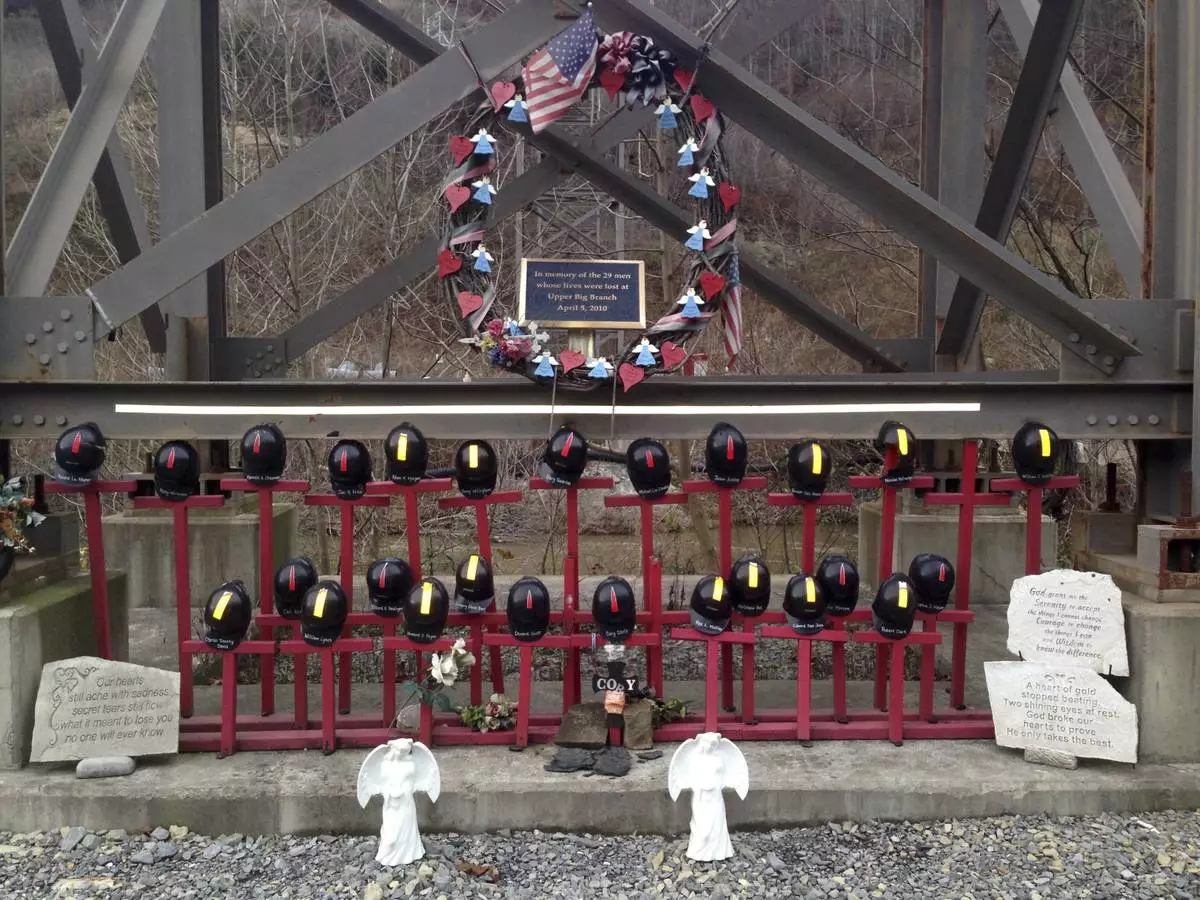
FILE - A memorial to 29 miners killed in a 2010 explosion stands at the entrance to the Upper Big Branch mine in Montcoal, W.Va., Dec. 3, 2015. (AP Photo/John Raby, File)
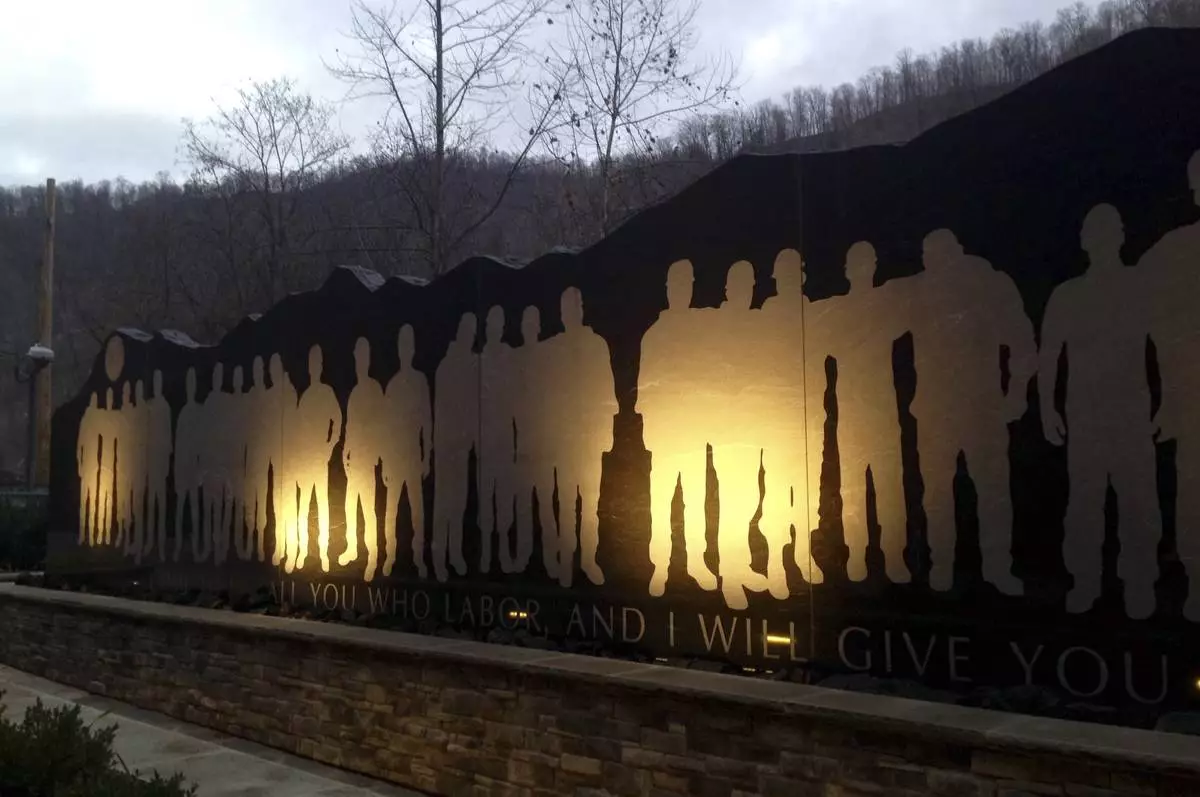
FILE - The Upper Big Branch Miners Memorial is illuminated in Whitesville, W.Va. Dec. 3, 2015. The memorial honors 29 miners killed in a 2010 explosion at the nearby Upper Big Branch mine. (AP Photo/John Raby, File)
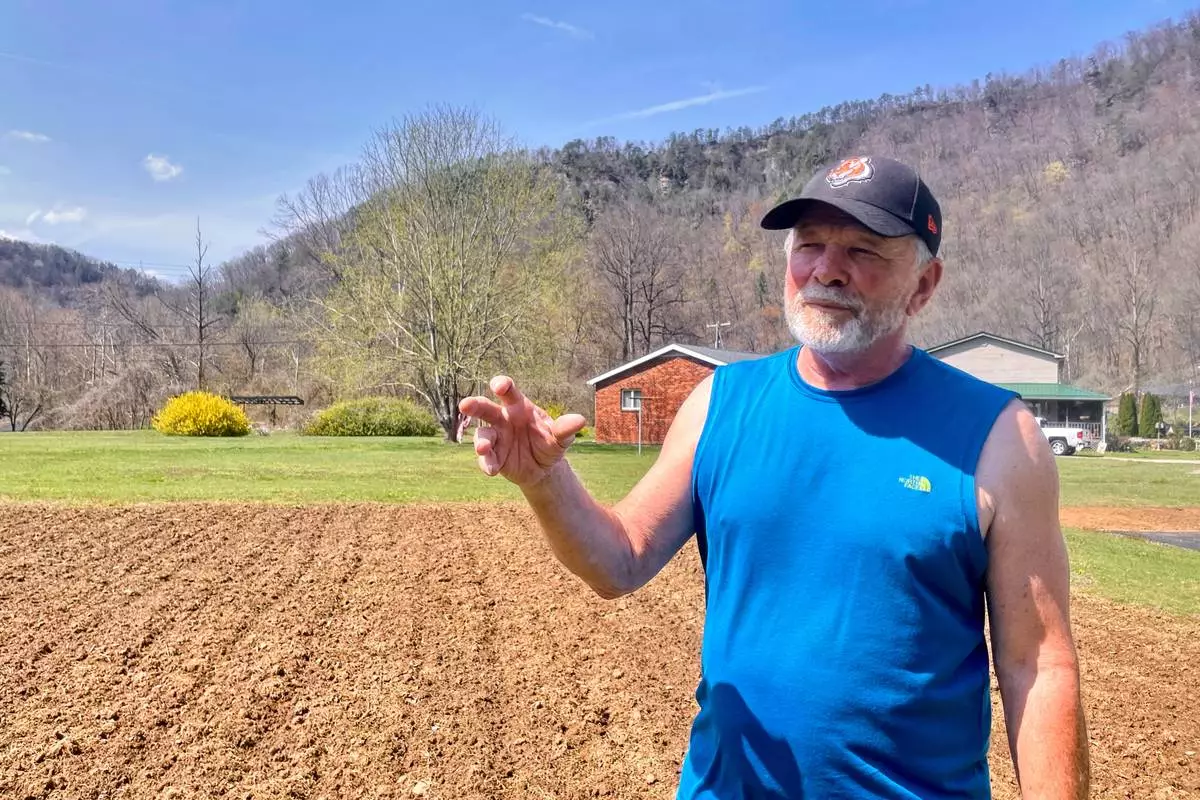
Retired coal miner Stanley "Goose" Stewart stands outside his home in Orgas, W.Va., on Wednesday, April 2, 2025. (AP Photo/John Raby)
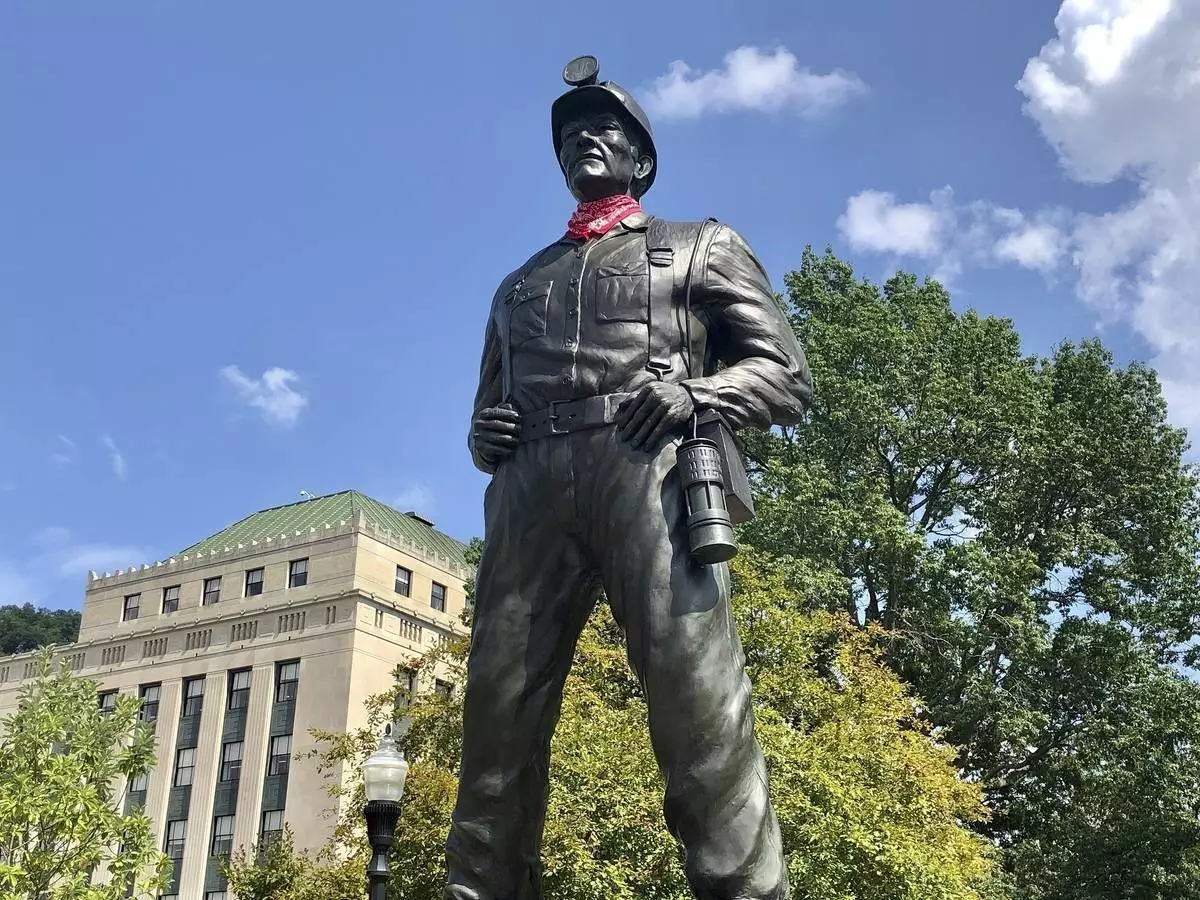
FILE - A statue of a coal miner stands at the West Virginia Capitol in Charleston, W.Va., Aug. 26, 2021. (AP Photo/John Raby, File)
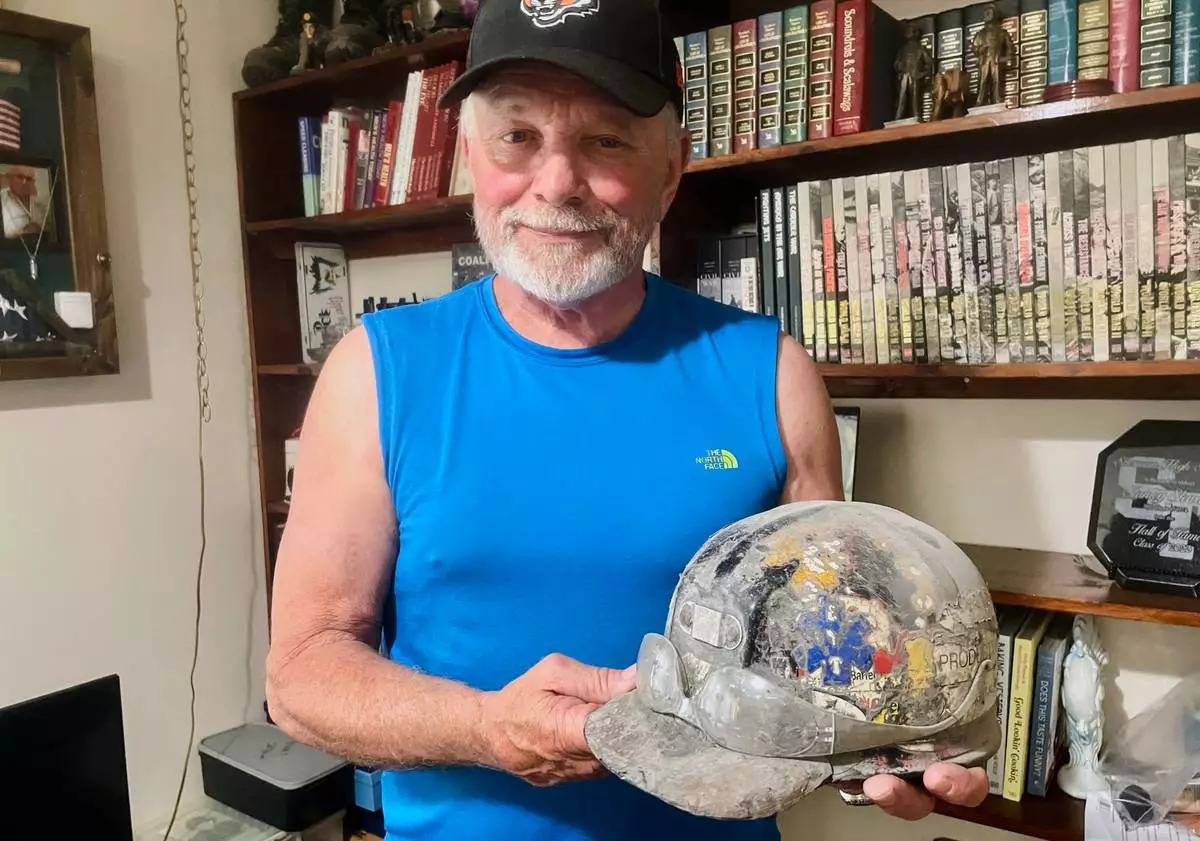
Retired coal miner Stanley "Goose" Stewart holds a helmet he wore inside the Upper Big Branch mine when it blew up on April 5, 2010, killing 29 men, as he stands for a portrait at his home in Orgas, W.Va., on Wednesday, April 2, 2025. (AP Photo/John Raby)











